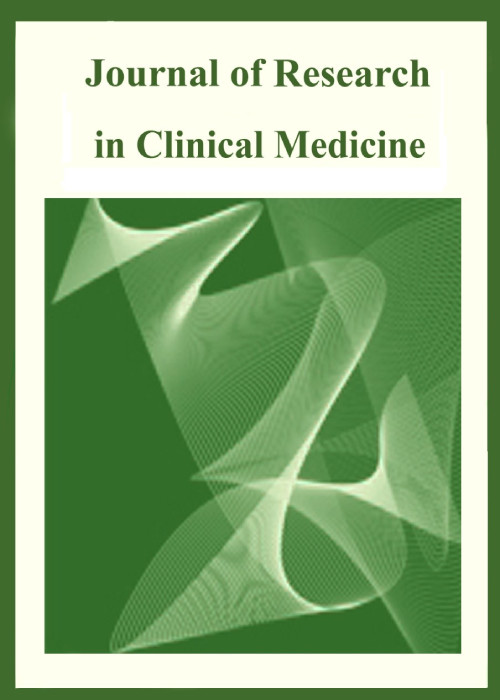The relationship between acidosis and hypercapnia with Cor pulmonale in patients with chronic obstructive pulmonary disease
Author(s):
Article Type:
Research/Original Article (بدون رتبه معتبر)
Abstract:
Introduction
Cor pulmonale or right ventricular (RV) enlargement is cardiovascular complication of the chronic obstructive pulmonary disease (COPD). Hypoxic pulmonary vasoconstriction, hypercapnia, acidosis and pulmonary vascular remodeling are suggested as possible mechanisms of cor pulmonale. In this study, we aimed to evaluate the correlation between acidosis and hypercapnia with corpulmonale in patients with COPD.Methods
In this cross-sectional analytical study, 100 patients (56 men and 44 women with mean age of 66.53 ± 10.63 years) with moderate to severe COPD exacerbation were included. Complete history taking and physical examination as well as atrial blood gas, pulmonary function test (PFT) and echocardiography were performed. Disease severity was defined according to global initiative for obstructive lung disease (GOLD), Modified Medical Research Council (mMRC) and COPD Assessment Test (CAT) criteria. Patients with cor pulmonale were defined and findings were compared between patients with and without cor pulmonale.Results
Forty-two patients had cor pulmonale. There was no significant difference in hypercapnia between groups. Cor pulmonale patients, compared to non-cor pulmonale, had significantly lower forced expiratory volume in the first second (FEV1) (P = 0.020), higher tricuspid regurgitation (TR) (P = 0.001) and pulmonary hypertension (P = 0.020). There was significantly negative correlation between RV thickness with FEV1/forced vital capacity (FCV) (r = -0.239, P = 0.010) and RV size with FEV1/FVC (r = -0.312, P = 0.002) and positive correlation with partial pressure of carbon dioxide (PaCO2) (r = 0.312, P = 0.002) and bicarbonate (HCO3) (r = 0.258, P = 0.009).Conclusion
Cor pulmonale in the course of COPD accompanies with adverse outcome. These patients have worse spirometry and left ventricle echocardiographic findings, but have no difference in arterial blood gas (ABG) findings.Keywords:
Language:
English
Published:
Journal of Analytical Research in Clinical Medicine, Volume:5 Issue: 4, Autumn 2017
Pages:
128 to 133
https://magiran.com/p1797765


